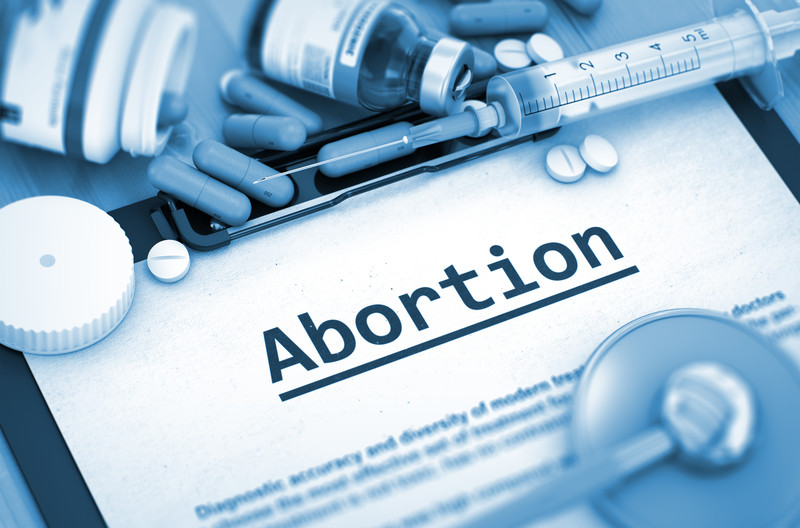Abortion Pill VS Morning After Pill: What You Need to Know.
Many people are confused about the difference between a morning-after and an abortion pill. It is due to the vast misunderstanding and false beliefs about emergency contraception.
However, there is a considerable difference between abortion pill and morning-after pill and how they both works. Here, we will see how these two work and what they do to the body.
The Morning After Pill
The Morning After Pill, also known as Emergency Contraceptive is a hormonal contraceptive. The pill, when taken within 120 hours of unprotected sexual intercourse helps in preventing unwanted pregnancy.
It is most effective if taken within the first 72 hours of unprotected intercourse. It contains progestin and levonorgestrel that prevent pregnancy by interfering with the fertilization of an egg.
The success of the morning after pill depends on the person’s menstrual cycles. It cannot help once the person is pregnant.
The morning pill helps prevent ovulation, thereby preventing the body from releasing an egg for conception.
These are readily available at over-the-top medical counters and do not require a doctor’s prescription.
The Abortion Pill
An abortion pill, also referred to as Mifepristone or Misoprostol is used as an early medical solution to terminate the pregnancy. You can get an abortion pill on the recommendation of the doctor to remove the unwanted pregnancy.
The pill is approved in the United States to be taken within a period of not more than 70 days since the last menstrual cycle of a person. It consists of two medications, one of which causes the uterus line to shed the egg and the other causes the uterus to contract.
Those who are at eight weeks or less pregnant have a higher chance of terminating a pregnancy with this method.
A majority of people prefer the abortion pill as the method feels more natural and allows the abortion process to take place as soon as the individual has a positive pregnancy test.
The Abortion Pill procedure can also be performed from 11 weeks to over thirty weeks which includes all second trimester, late term and third trimester abortion procedures.
After a certain number of weeks regnant, there must be strict maternal or fetal indications to terminate the pregnancies.
The medical literature from around the world shows that the use of the Abortion Pill procedure in late term pregnancies are highly safe, efficient and effective.
Why Get An Ultrasound Done?
An ultrasound will help the person understand as to whether the pregnancy is still in the womb or outside the womb or uterus. In the second case, it is not advisable to use an abortion pill as it might lead to a life-threatening situation.
If the person takes medicine when the pregnancy is outside the womb or uterus, it can lead to many abortion pill side effects such as the bursting of the fallopian tube, which can prove fatal for the person.
Apart from this, ultrasound also helps in knowing the exact duration of the pregnancy thereby help provide a suitable solution.
Are There Any Side Effects With The Abortion Pill?
The abortion pill has a higher degree of effectiveness for terminating a pregnancy. However, some of the issues that may arise from these pills include;
-
Infection
-
Excessive bleeding for a longer time
-
Blood clots in the uterus
-
Allergic reaction to the medicine
At times, it might cause certain complications that can be dangerous to the person. These can include;
-
Heavy vaginal bleeding
-
Passing of large clots
-
Stomach pain or cramps
-
Fever of 100 or higher
-
Weakness, Nausea, Vomiting, and Diarrhea
If any of these complications happen, do not delay any further and contact the nearest health center or call your doctor.
Success Rate Of The Morning After Pill
The Morning After Pill will be effective up to 3-5 days after having unprotected sexual intercourse. It is readily available at the local drug store, and there is no need of having a medical prescription to buy it.
The effectiveness of a Morning After Pill is between 75-95% if taken within 72 hours of unprotected intercourse. However, some morning-after pills might be ineffective depending upon the person’s BMI (Body Mass Index).
The person needs to take them within a maximum of 5 days after unprotected intercourse.
Are there any Side Effects That I Need to Be Aware Of?
After taking the morning-after pill, it is natural for the next period to come earlier, later, be heavier, or lighter. Apart from this, the person can feel lightheaded and dizzy.
If the person vomits within 2 hours of taking the pill, they will need to retake the medication. Also, cramping, and unexpected bleeding is some of the mild side effects caused after taking the pill.
Besides, no two contraceptives should be mixed or taken in a dosage other than the one prescribed by the doctor. These two things can increase the chances of the person falling sick.
If the person receives the pills every month or several times a month, then they need to consult a doctor to know about other contraceptive options.
The Conclusion
It is important to understand the difference between Abortion Pills and Morning After Pills.
Beyond the differences in use, mechanism of action and after effects, both are medical treatments developed for different purposes and should be used for their precise applications.
These medications can affect people differently, a conversation with a healthcare provider is essential before taking either medication.
This will ensure that the medicines help in avoiding unwanted pregnancy without causing any complications to the person.
The Fort Lauderdale Women’s Center is Offering The One Hour Abortion Pill Procedure – 3 to 14 Weeks. Patients who qualify may receive a significant discount in the price of the procedure if they meet certain criteria.
Call Us Now For Same Day Appointment.
Dr James S Pendergraft | Orlando Women’s Center



Leave a Reply